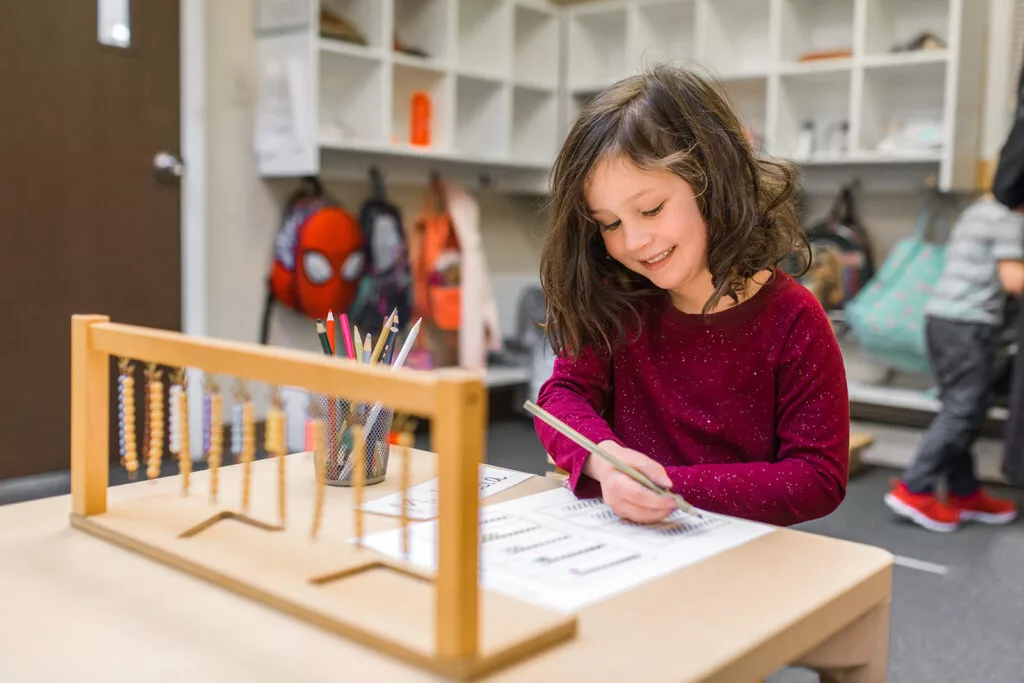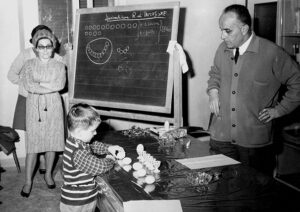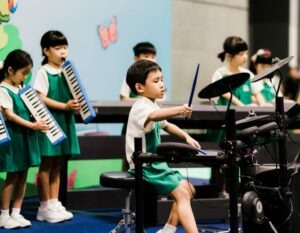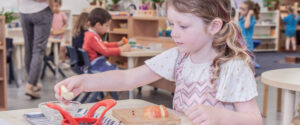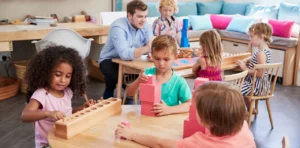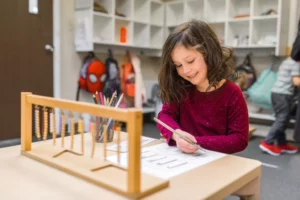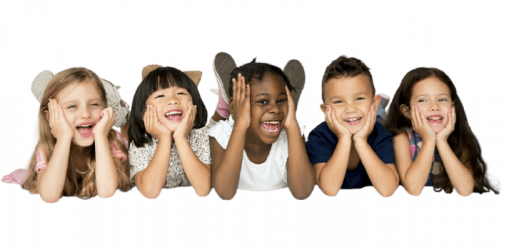The Montessori Approach: A Different Perspective
We believe that traditional methods of evaluation often fall short of understanding the child’s unique growth trajectory. Montessori’s way of assessment and evaluation stands apart, embracing a more holistic and child-centered approach. This philosophy forms the core of Montessori education, allowing for an individualized learning path tailored to each child’s unique abilities and interests.
The Montessori approach to education is a holistic and child-centered method that has transformed the way many perceive learning and development. Established by Dr. Maria Montessori over a century ago, this philosophy emphasizes the individuality of each child and recognizes that children learn at their own pace. But what truly sets the Montessori method apart is its unique approach to assessment and evaluation.
In traditional educational settings, assessment often involves standardized tests, grades, and rigid benchmarks. The focus is on measuring a child’s performance against predetermined standards. In contrast, Montessori education sees assessment and evaluation as an ongoing, dynamic process that aims to understand and foster each child’s individual growth.
Child-Centered Assessments: Shaping the Individual
In Montessori classrooms, we find that evaluations are not a mere measurement of rote memory but a reflection of a child’s growth in various aspects. Observations, rather than tests, play a critical role. Teachers keenly observe the children’s interactions, learning styles, and responses to challenges, thus providing an assessment that is both intuitive and insightful.
Child-centered assessment, as applied in the Montessori method, is fundamentally different from traditional evaluation systems. Instead of focusing on grades, ranks, or standardized tests, child-centered assessment prioritizes the unique needs, interests, and abilities of each child. It’s a fluid and adaptive process that serves as a tool for both understanding and facilitating a child’s individual development.
Observational Techniques
We acknowledge the importance of observation in the Montessori assessment. Trained Montessori educators are skilled at noticing subtle changes in behavior, interest, and skill development. These observations are often recorded and analyzed, contributing to a comprehensive understanding of a child’s developmental stage and learning preferences.
In the Montessori environment, assessment begins with observation. Educators spend time watching children as they engage with materials, interact with peers, and explore their surroundings. This isn’t a passive act but a deliberate and skilled practice that involves understanding what to look for and how to interpret what’s seen. The observations are used to create a detailed picture of each child’s progress, challenges, and potential growth areas
Portfolio Assessment
Portfolios of a child’s work over time give us a nuanced view of development. This approach emphasizes a continuous and collaborative evaluation method, involving both the teacher and the child. The collected works in the portfolio become a tangible testament to the child’s growth, enriching the evaluation process.
One of the primary tools used in Montessori’s child-centered assessment is the creation of a learning portfolio. This portfolio is a collection of a child’s work, reflections, and achievements over time. It might include samples of work, photographs of activities, and anecdotal notes from the teacher. The portfolio serves as a tangible record of a child’s development and a meaningful way to communicate progress to parents.
The Importance of Collaboration: Parents and Teachers Together
We emphasize the role of parents in the evaluation process. Open communication and regular meetings between parents and teachers forge a partnership. It aligns the home and school environment, providing a consistent and supportive framework for the child. This collaboration brings a more rounded perspective on the child’s development and ensures that the educational journey is aligned with the child’s unique needs and family values.
In the Montessori educational approach, collaboration between parents and teachers is not just encouraged; it is considered essential. It’s more than communication; it’s a partnership where both parties work together to nurture the child’s holistic development. This article will explore the crucial elements that make this collaboration successful.
In Montessori education, parents and teachers often work together to develop a shared vision and goals for the child. This begins with a clear understanding of the Montessori philosophy and how it applies to the child’s development. Regular meetings, workshops, and discussions enable parents and teachers to align their efforts and ensure that the child’s educational journey is consistent at home and school.
Trust and respect form the foundation of any successful partnership. In the Montessori context, parents and teachers must trust each other’s expertise and intentions. Teachers bring their professional knowledge and experience, while parents bring their unique understanding of their children. This mutual respect encourages an environment where both parties feel valued and heard.
Parents play an active role in the Montessori community. Schools often offer workshops, classes, and resources to help parents understand the Montessori method and how they can support it at home. Parents are also encouraged to participate in classroom activities and events, further strengthening the connection between home and school.
Evaluating Progress: The Unseen Metrics
Montessori evaluation goes beyond mere academic success. It includes social, emotional, physical, and ethical development. We see the child’s growth in their ability to resolve conflicts, their creativity in problem-solving, their empathy towards others, and their engagement with the community. These ‘unseen metrics’ make the Montessori assessment a profound and impactful tool for guiding a child’s comprehensive development.
In the Montessori system, evaluating progress goes beyond traditional grades and standardized tests. The focus shifts to a more holistic understanding of a child’s growth, including not only academic achievement but also social, emotional, and cognitive development. The unseen metrics in this approach allow for a more comprehensive and individualized assessment.
One of the core elements of Montessori evaluation is continuous observation. Educators observe students’ daily activities, interactions, and behavior, looking for evidence of development, interest, motivation, and problem-solving skills. These qualitative insights provide a nuanced picture of the child’s progress, capturing the subtleties often missed in conventional assessments.
Montessori evaluation avoids comparing children to each other or to standardized benchmarks. The focus is on the individual child’s growth over time, looking at where they started, where they are now, and where they might go next. This approach respects the child’s unique pace and path.
Conclusion: A Dynamic Approach for a Lifelong Journey
Guiding growth through the Montessori way of assessment and evaluation is not just about measuring knowledge; it is about understanding the child. We view assessment as an evolving process that is receptive to the child’s continual changes. By valuing the individual, fostering collaboration, and recognizing the unseen metrics, the Montessori approach provides a dynamic, compassionate, and effective way of nurturing lifelong learners.
The Montessori Way of Assessment and Evaluation is more than a pedagogical technique; it’s a philosophy that recognizes the intrinsic value and uniqueness of every child. This concluding reflection encapsulates the key components of this transformative approach, offering a vision for a more compassionate and holistic future in education.
The Montessori Way of Assessment and Evaluation is more than a methodology; it’s a call to action, a reminder that education can be a nurturing, empowering, and transformative force. It’s a guiding light towards a future where every child is seen, heard, and valued for who they are, not just for what they can achieve. In embracing this vision, we take a step closer to a world where education is not merely a means to an end but a joyful exploration of life itself.

